A CURTAIN hangs behind Oleg Zagorodnii, vertical folds you’d see shrouding a stage. He’s an actor by trade. In 2021, he starred in Firebird, a Soviet-era romance film that was made in Estonia. Zagorodnii says he dreams of one day attending cinema premiers in Hollywood, the heavy velvet parting to reveal bright lights and a swelling soundtrack. But from his home in Kyiv tonight, the drapes smother the weak overhead light before it can escape—no easy targets. “I don’t want to do this bullshit with Russia,” he says. “I want our independence.”
Zagorodnii, 35, is strong-jawed, with the week-old beard his country’s president, Volodymyr Zelenskyy, has made nearly as emblematic of wartime as the yellow and blue of the flag itself. Dark eyes contrast with fair skin, with brown hair neatly parted and swept from his face. He looks like an actor. He looks like a model. He was both before Russia invaded. But now, in wartime, Zagorodnii has adopted new roles: community organizer, fundraiser, and military uniform designer. “It’s more important now to do what I do,” he says.
It was in the early days of the invasion, when the country held its breath to see what would happen next, that Zagorodnii first envisioned apparel design. A seamstress, with whom he’d worked in his modeling days, was newly unemployed—no need for fashion houses when your actual house in being shelled. Around the same time, a close friend, recently enlisting in the military, reached out in desperate need of warm clothing after being stationed in the mountains with little more than a thin uniform. And so Zagorodnii began connecting his experience to the need, first sketching out a soft-shell, wind- and water-resistant jacket. He drew up green T-shirts—multiples were a luxury, and most men “smelled like dirty horse,” he says. Durable trousers. Warm sweatshirts. But these pieces didn’t just sloppily fill a void; with Zagorodnii’s background, they were tailored to fit well: “I know, when these [Russians] look at them in their”—and he pantomimes binoculars—“they look cool.”
More From Men’s Health
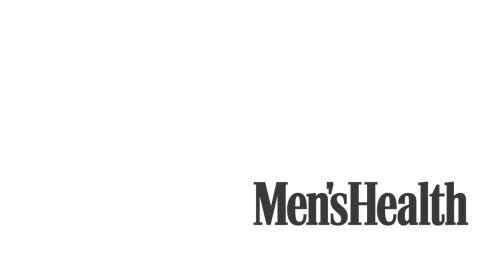
So in March 2022, just a month after Russia’s invasion, Zagorodnii launched his military clothing project with his own savings, the proceeds of a pre-war TV project. “We don’t have any restaurants, all clothes shops are closed, all travel, you don’t have any opportunity because you’re stuck in Ukraine,” he says. “[But] I can help our army.”
When he ran out of money, he asked Instagram followers for donations, and when that fell short, he went abroad, leaving for Poland on Christmas Eve 2022 to fundraise around the world. Warsaw, London, Miami, Los Angeles; wherever he could get a meeting with those who had money, he met and pleaded and pitched. He could have just as easily claimed refugee status and started a new life. But that was never a consideration: “This is my motherland,” he says. “I can’t leave my people in this period. I can’t leave them when we will win.”
It was during this whirlwind tour that he met fashion photographer Bruce Weber in New York. Weber wanted to shoot Zagorodnii after seeing his role in Firebird, and they spent the afternoon talking about the war. Weber has previously shot for Calvin Klein, Ralph Lauren, Gianni Versace, and others, but he was quickly drawn to Zagorodnii.
“[Zagorodnii] told us harrowing stories of the bombings in his neighborhood, which made the reality of this war very personal,” Weber says. “It’s as if his future is on hold until there can be peace.”
As Weber photographed Zagorodnii in his Montauk studio, he remarked how the pieces, with fabric substitutions, would fit the everyman just as well as the soldier. When a veteran in the fashion industry offers encouragement, you take it, and so Zagorodnii started a complementary fashion line, Brave+1, to fund the military wing.
Brave+1 adapts many of the articles designed by Zagorodnii and worn by the Ukrainian serviceman for the everyday guy. The #1 Green Over Shirt ($129), with its notch lapels and four-button stance, cuts a silhouette like countless other blazers. But from the digital camouflage bellows pockets to the Velcro arm patch, it’s just as easily seen as a utility piece that pays homage to the front lines. And just in case it’s not clear on which side you’re supporting, each item, cut and sewn in Ukraine, includes a blue-and-yellow affixable patch that reads “Russian Warship, Go Fuck Yourself.”
“It’s important, when people around the world wear it, what does it mean,” Zagorodnii says. “It’s the color of brave people on democracy’s side. On the right side. On the future’s side.”
With each jacket purchased, the profits create three Ukrainian uniforms. And with every item sold, from pants to passport covers, the money is put back into outfitting Ukrainian soldiers.
Zagorodnii admits the war has taken its toll on him. His visions of Hollywood? “I don’t build any plans for longterm—I just live month by month,” he says. His goals now are more immediate, more tangible. As of now, he’s produced more than 500 garments for the Ukraine military, and plans to create one thousand more before the spring fighting season. “And then I hope I will produce uniforms for the victory parade,” he says.
What keeps him going, and keeps his countrymen fighting, he continues, has been the support of those abroad. Those who buy pieces, donate money, or just post in sympathy with current events in the country. “I have a lot of people around me who, every day, ask me, ‘How are you,’” he says. “When I feel we are not alone in this fight, I understand we will win.”
Brave+1 may be a small effort in the scope of global politics and modern warfare. But it’s the collection of small efforts, one man joining another, the collective standing up to an invading force, that create a beachhead from which to resist. And, yes, someday even triumph.
So yeah, a jacket is just a jacket. A pair of pants is just a pair of pants. But the symbol itself can mean so much more than its component fabrics. “When people wear this jacket, they remember that we still fight,” Zagorodnii says. “And after the war, it’s going to be this symbol of big victory.”
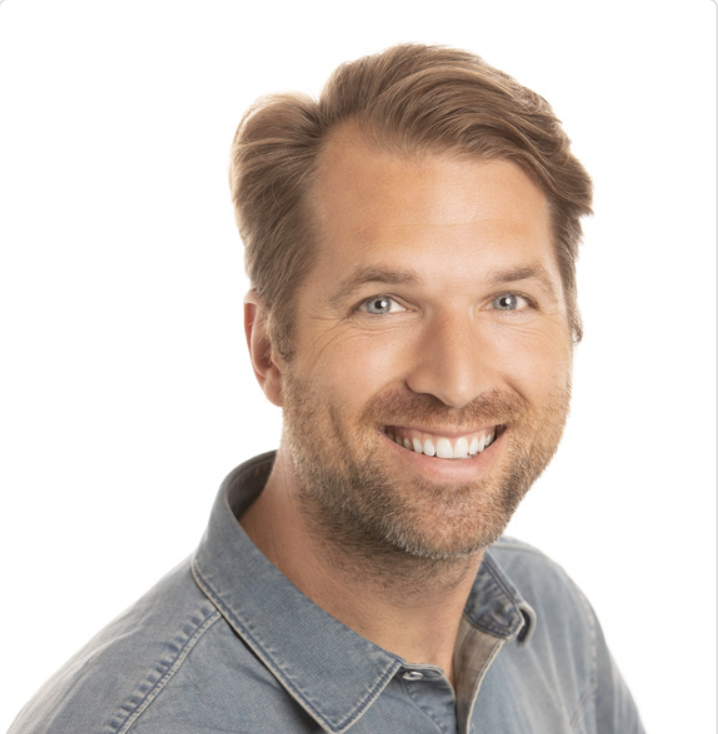
Jon Gugala is a freelance writer based in Nashville who highlights the people that make the art, music, plays, and policies that change the world.


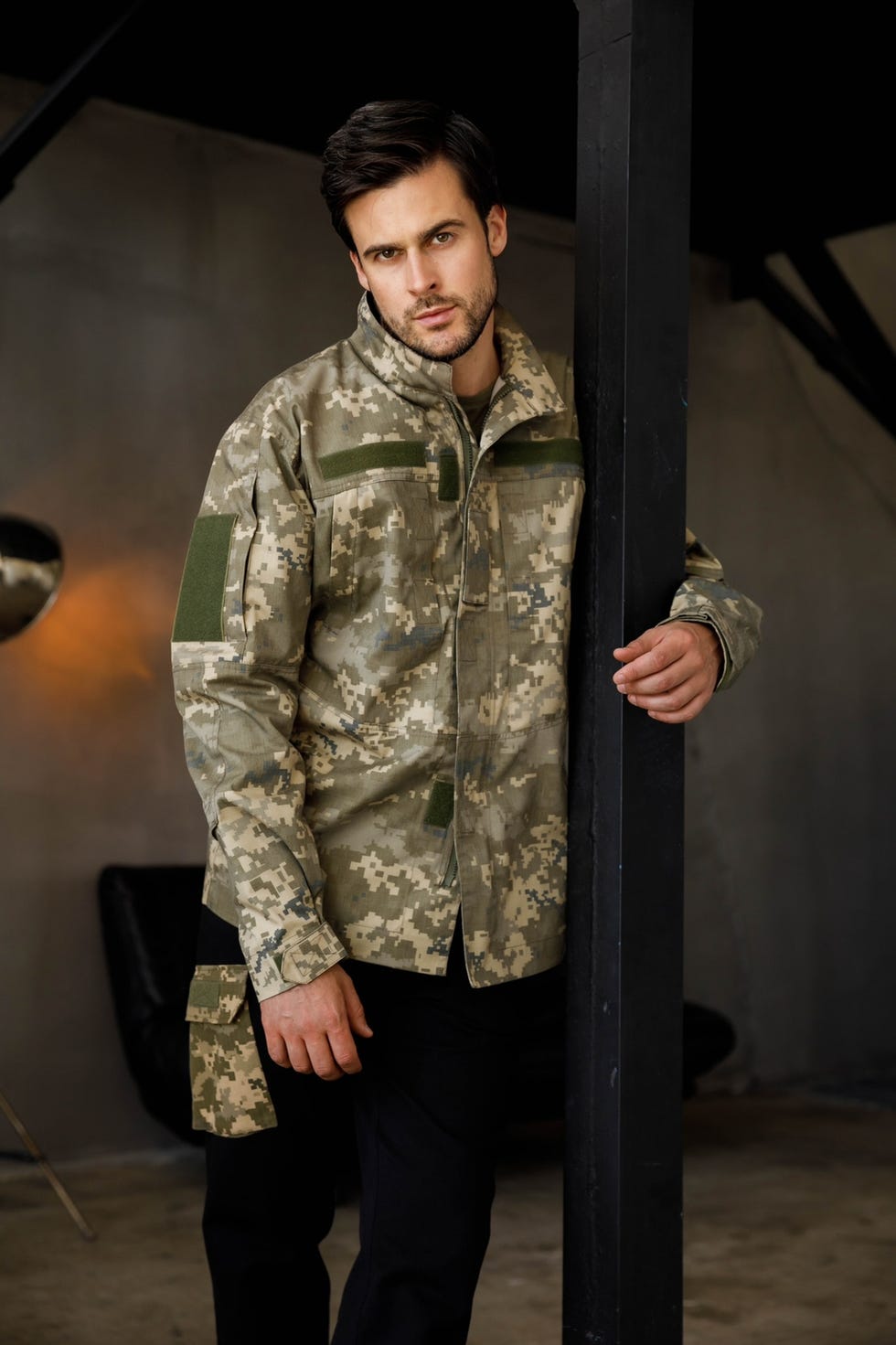
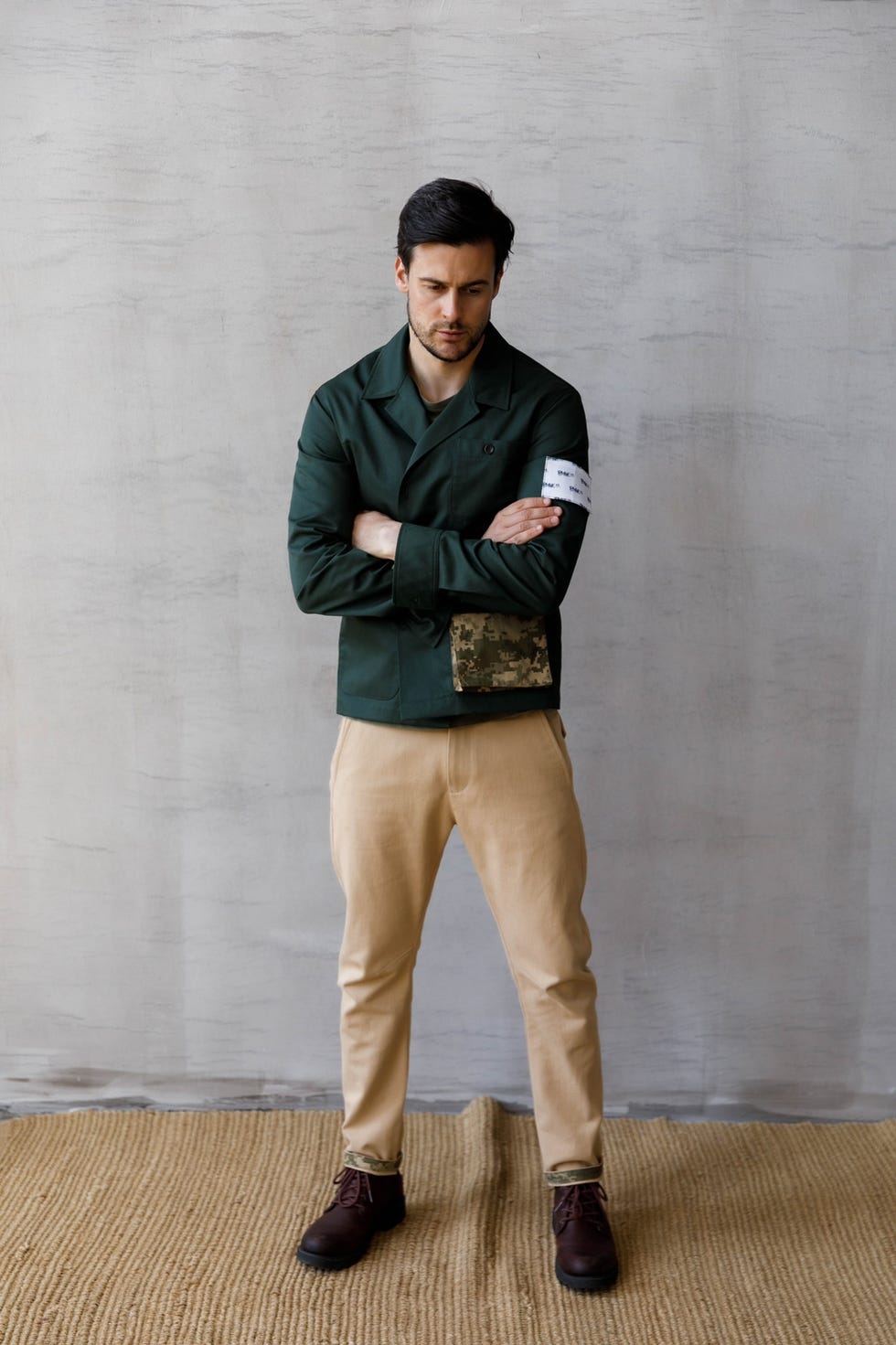
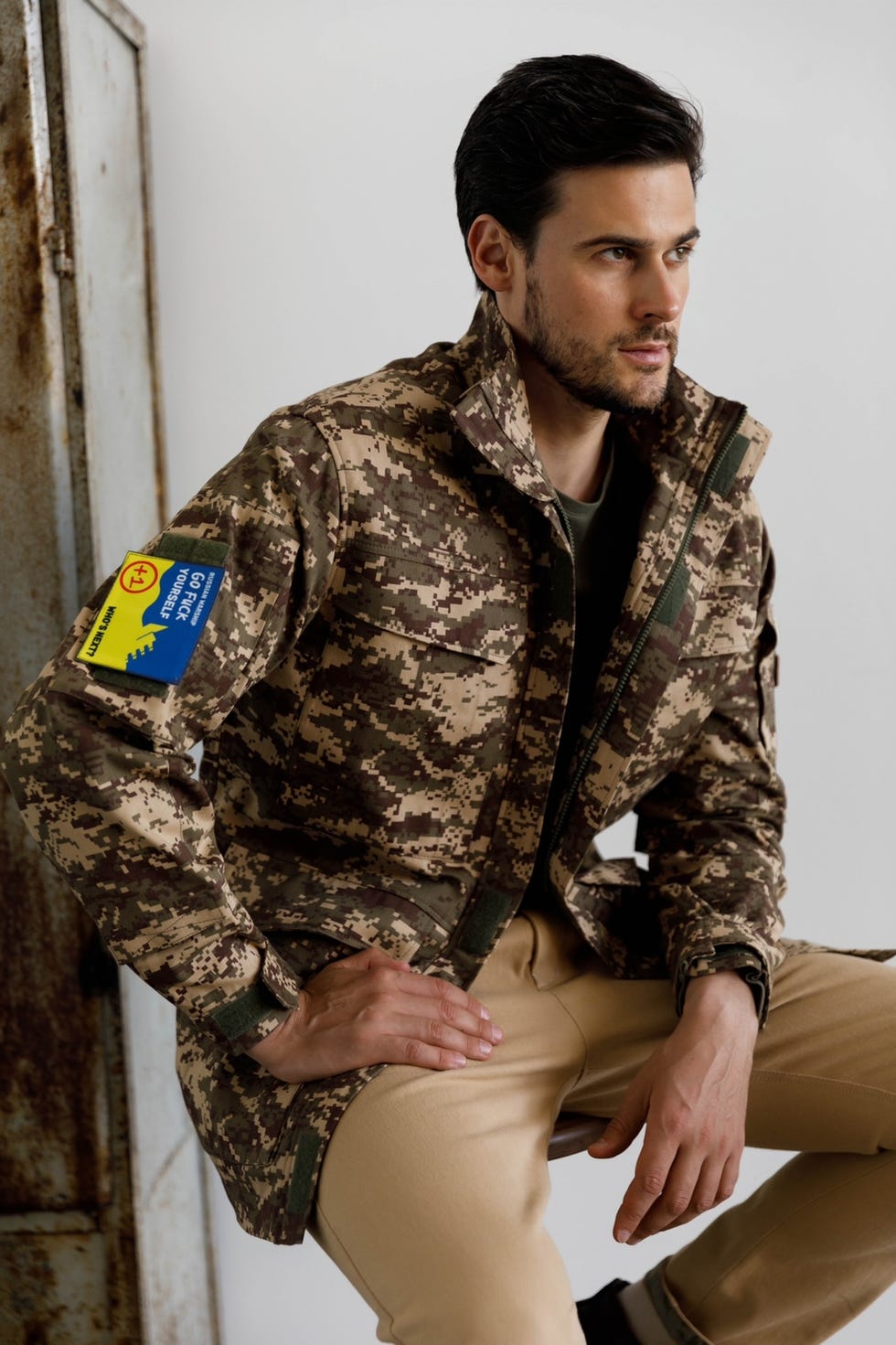
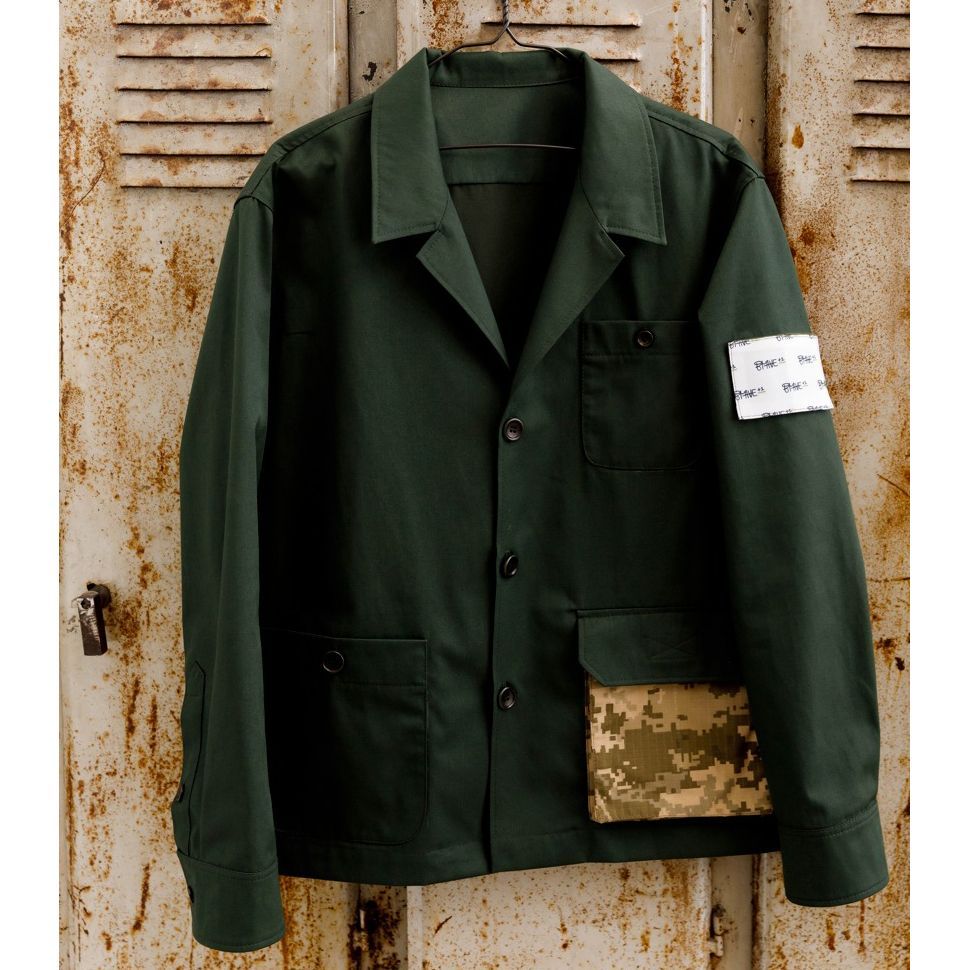
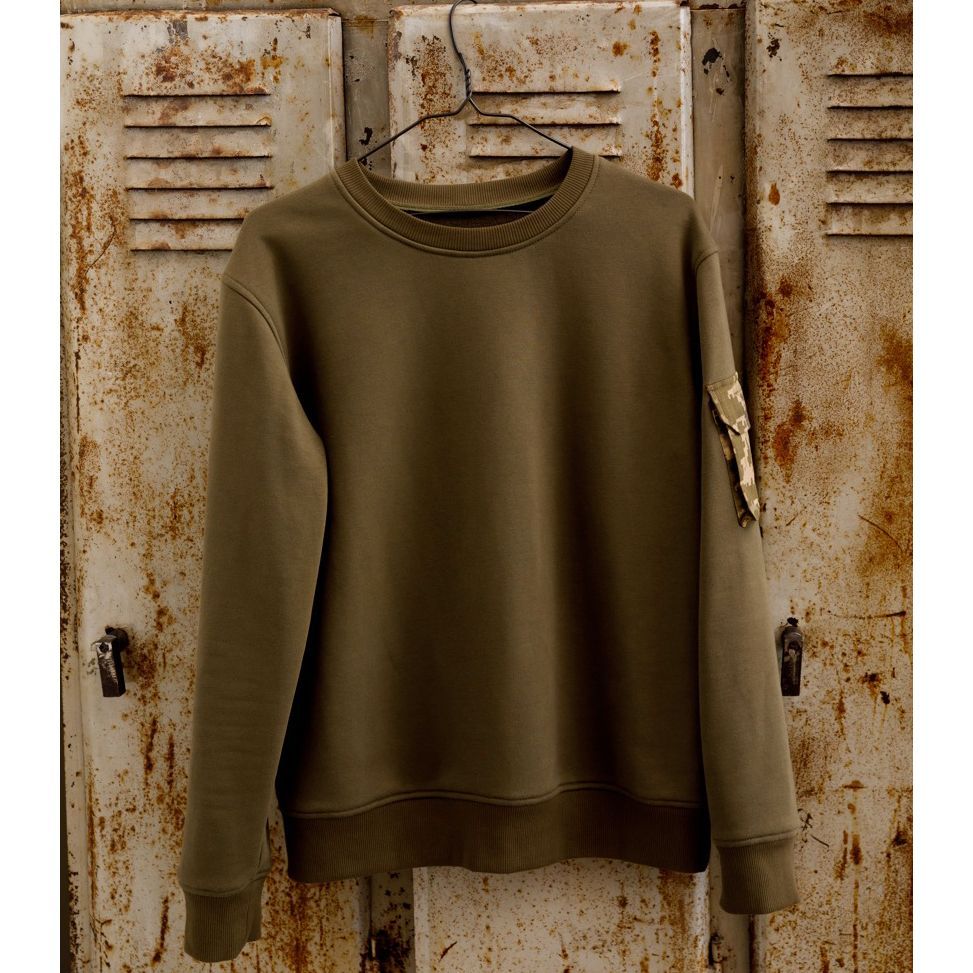
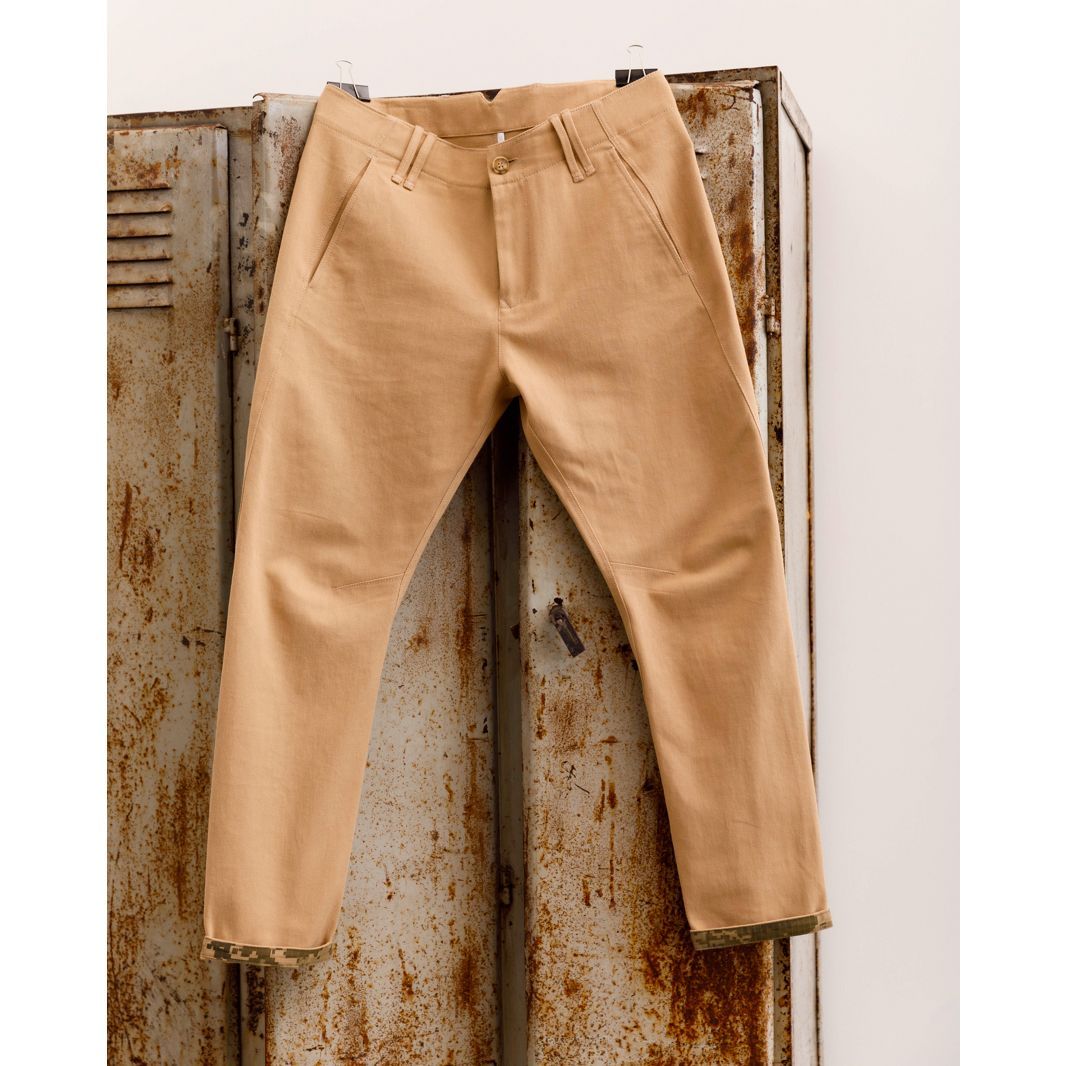
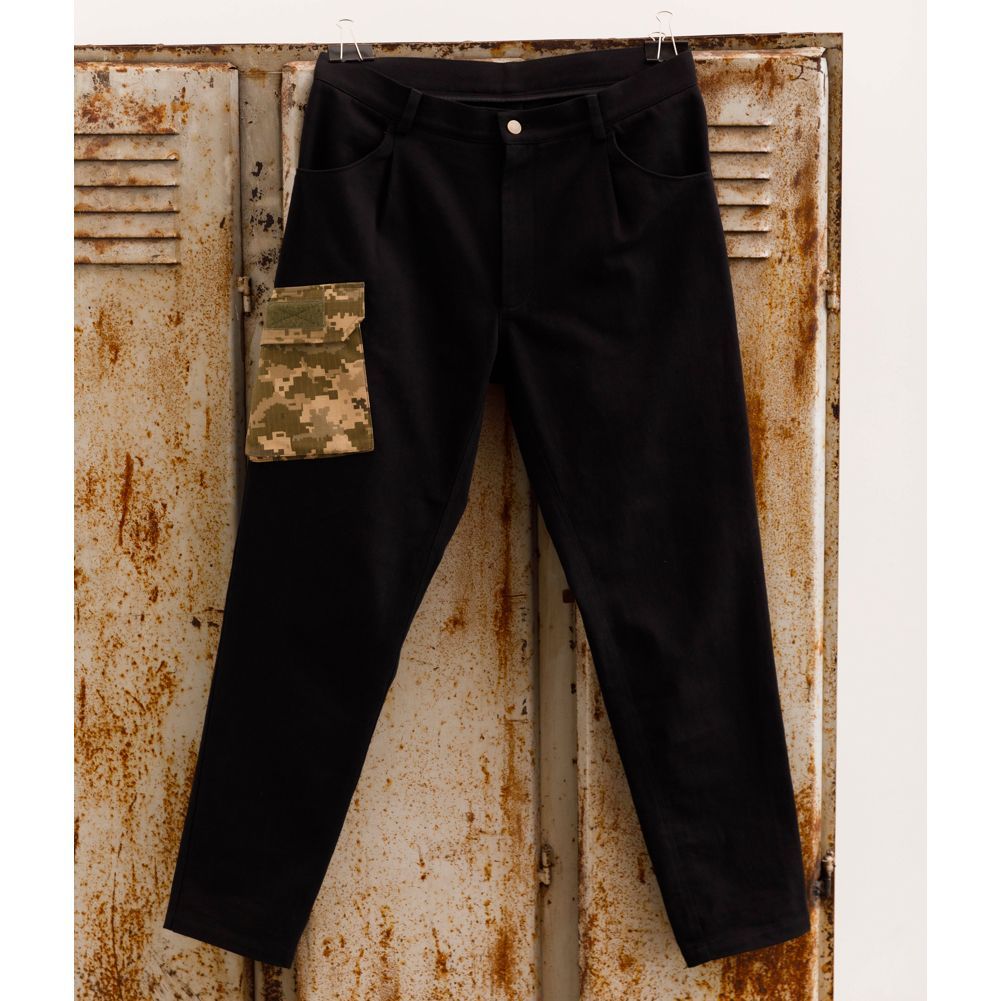
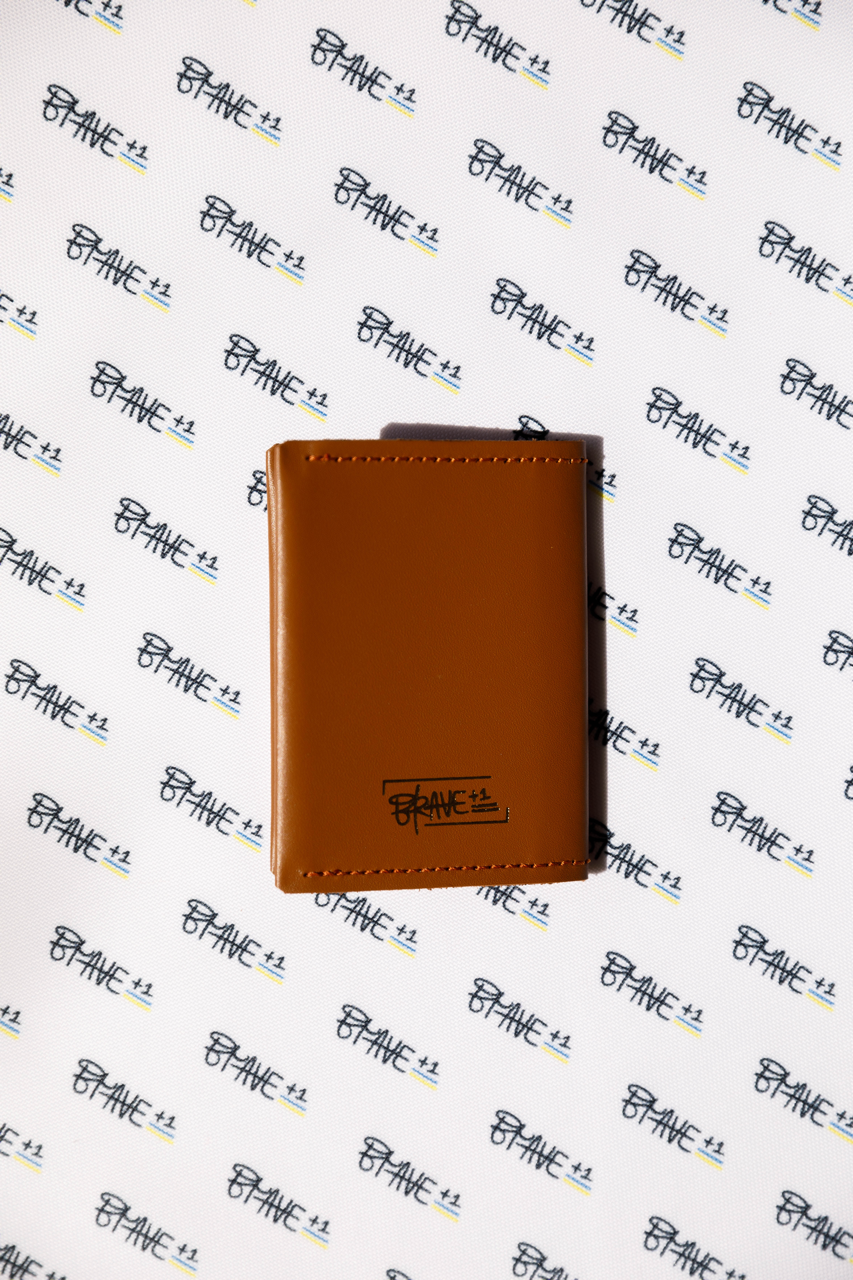
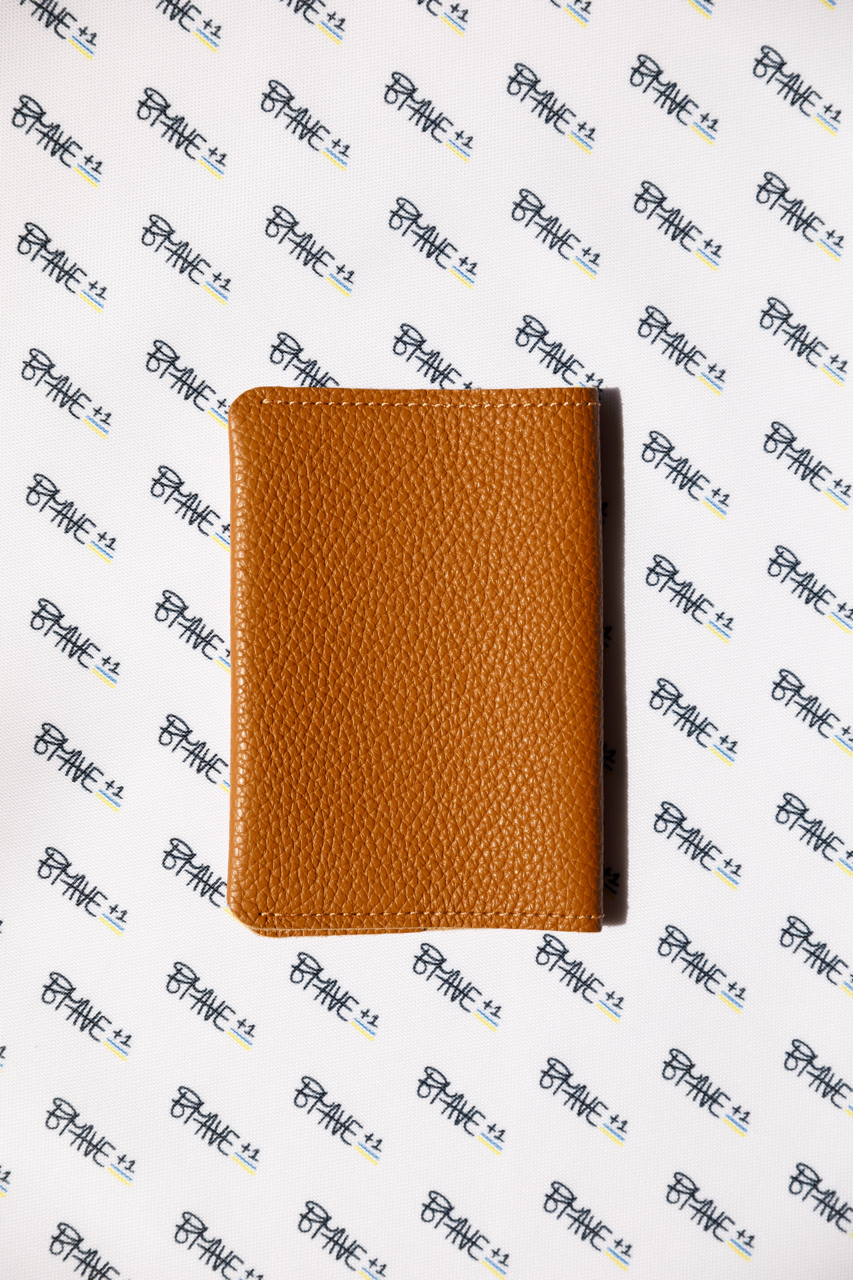
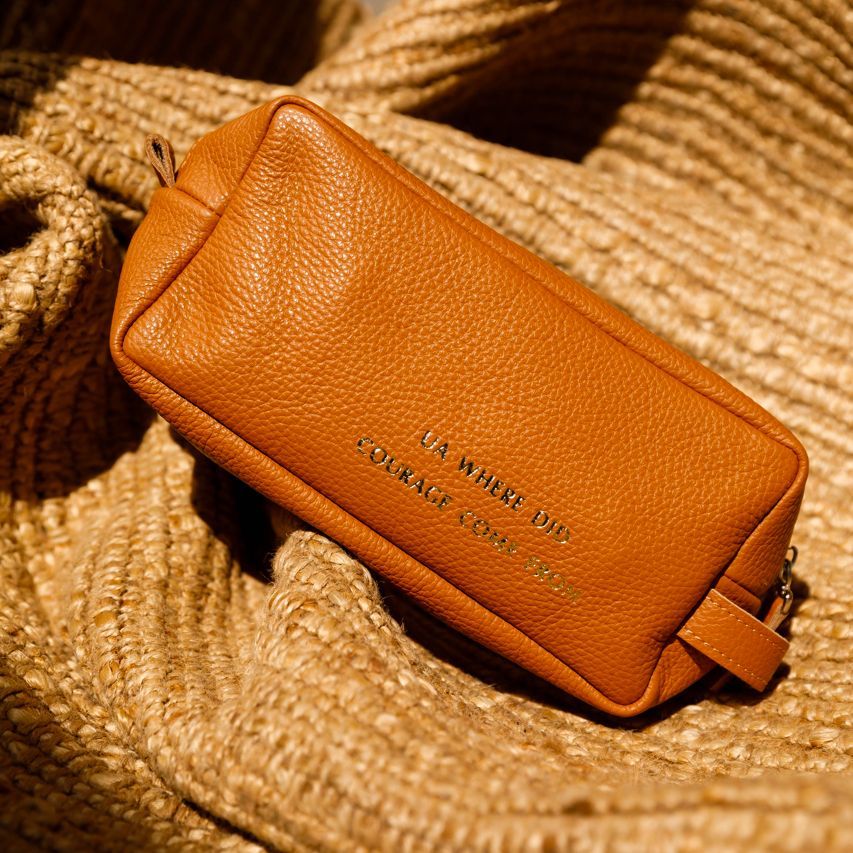
Comments are closed.